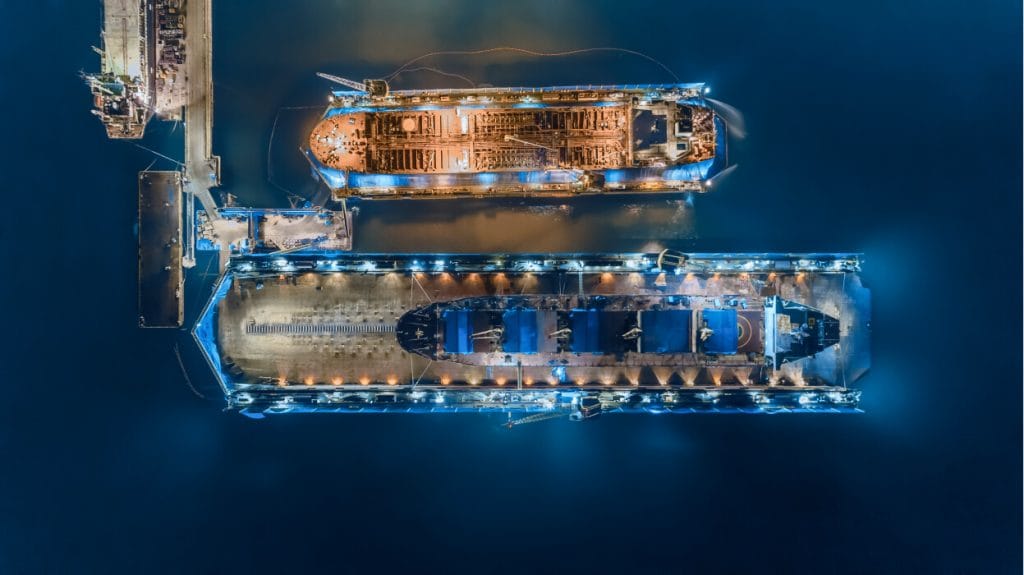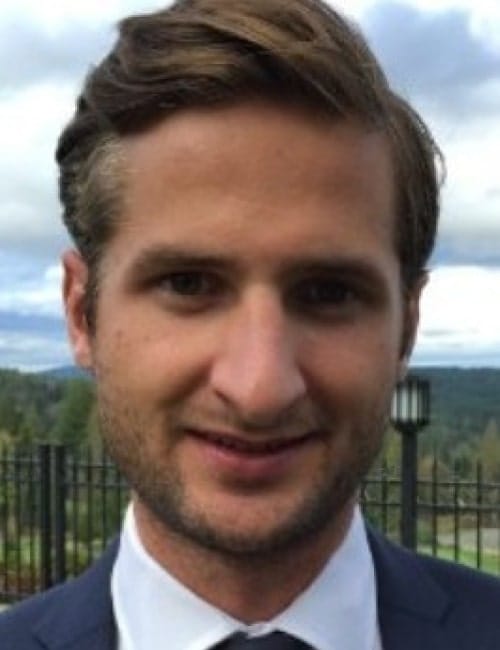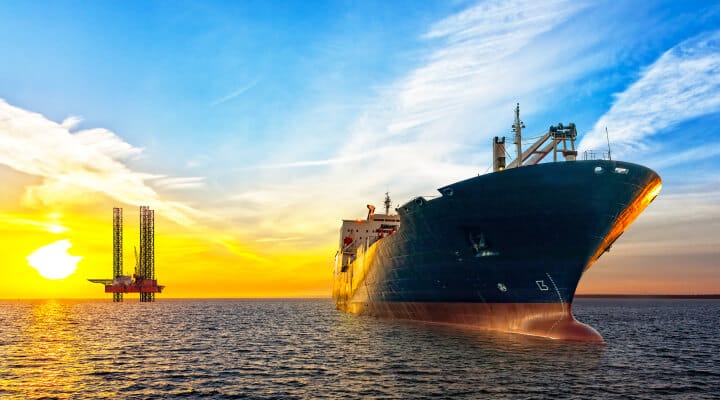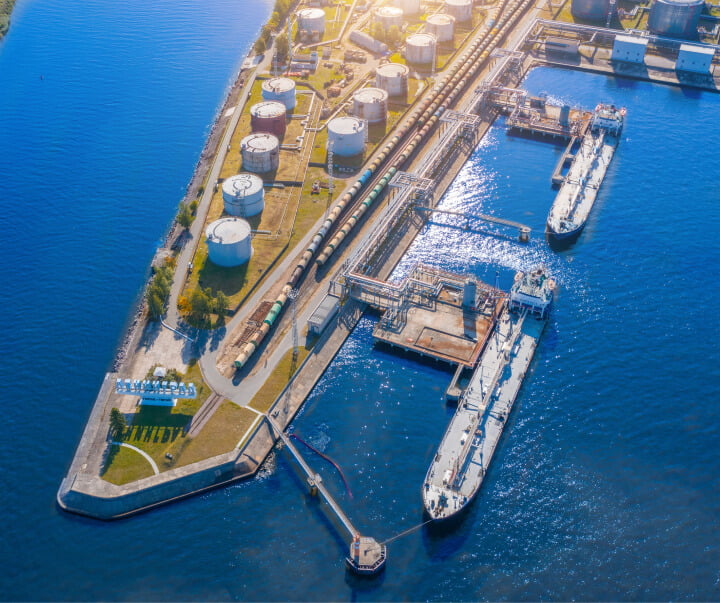
10 years of Engelhart: Interview with our Global Head of Freight – Fergus Garvin
We mark our tenth anniversary this month.
Engelhart began life as the commodity trading division of BTG Pactual in the first half of 2013, but we placed our first trade in October of that year.
In July, we sat down with our CEO, Huw Jenkins, to reflect on ten years of the business (you can read that here), but we also wanted to hear more stories from some of the team that have been here since the beginning.
Our Global Head of Freight, Fergus Garvin, joined in early 2013 and has been leading our team of Freight traders in Geneva since 2015.

What are your memories of those early days of the business?
I joined in May 2013, a few months before our first trade in October of that year. I remember that I was approached when the business was in its inception; it was little more than an idea at that point.
We started life as a division of BTG Pactual, and, if I’m being honest, I hadn’t even heard of BTG before. I was working on the Freight desk at Cargill then and wasn’t really looking for a new job.
I actually turned the role down initially. I enjoyed working at Cargill and felt like I was in the thick of it, working for one of the biggest Freight traders in the world.
Then, in early 2013, BTG came back with another offer, and the pitch caught my interest. It was very much “Come and join us and help us build a business.” Although I was happy at Cargill, I realised I would always be a small cog in a huge machine. What BTG was doing felt fresh and exciting.
I also learned a bit more about the foundation story of the business, and I was impressed, so I finally said yes!
It must have been an exciting time?
It absolutely was. When I joined, we had a couple of computers in a rental office, but the scale of the ambition of the leadership team was clear from the beginning.
We grew from a dozen or so people to a thousand people in such a short space of time. It felt like so much was going on, and Freight was the nexus of everything. It was tremendously exciting for a young trader to be a part of.
Looking back now, it clearly wasn’t sustainable, but what felt refreshing was that the business was always looking to try new things. I’ve always tried to maintain that with my team, being great risk managers, of course, but also being “pro-risk” and seeing it as an opportunity, not a limitation.
“What BTG was doing felt fresh and exciting.”

You were asked to take on a lot of responsibility early on?
Yes, I was only in the business for two years, and the opportunity came up to head up the Freight desk. They could have gone external and looked for someone with more experience, but they backed me to take on the role.
I was only 32 then, which showed how flat and meritocratic the business was (and still is!). What I’ve always enjoyed at Engelhart is that strong performance will get rewarded, no matter your experience.
It was a big job and pretty daunting, but I’ve always had great support from the management here. They could have said to me, “sink or swim,” but they didn’t, and I guess that’s why I’m still here.
How do you reflect on those eight years heading up the Freight desk?
Of course, there have been many ups and downs, but from my point of view, I’ve always believed that this platform is a great place to run a business. You’re trusted to make the right decisions, and if you reward that trust, you’ll get the independence to back yourself and your team.
If I want to hire another analyst or start trading another vessel class, I can; we’re not facing layers of bureaucracy to get things done.
Hopefully, that trust comes from the fact that our Freight team has done a good job over the last ten years, but it also comes from that “pro-risk” attitude. As a business, we’re looking for new opportunities, not just managing the status quo.
“What I’ve always enjoyed at Engelhart is that strong performance will get rewarded, no matter your experience.”
I’ve learned a lot in the last ten years here, so much that I wouldn’t have been exposed to if I was working at one of the bigger traders. You’re involved in many more decisions in terms of financing and the legal and operational sides of the business.
There’s been a considerable transition in Engelhart since those early days. Initially, we grew really fast as a physical trader, and our desk was right at the heart of that. We were shipping grains and oil seeds for traders in Argentina, Brazil, the Black Sea, USA, China, and Singapore, as well as working on projects for coal from Columbia and Indonesia and nickel ore from West Africa.
We were doing all sorts of different flows, and there was a huge demand for the Freight desk. As we’ve transitioned to a more financial-based platform, we’ve had to adapt the business model, but we’ve found great success doing that. We still do physical business – shipping grain in Brazil – which I see as an essential part of what we do. We’re really the only part of Engelhart still with a hand in the physical side of commodities.

What does a day in the life of a Freight trader look like?
We start early; Dubai-based brokers are quoting FFA prices on WhatsApp from 0600. Our set-up is unusual in that our team of five traders are all trading derivatives, so we’ll all be managing our positions even as we eat our breakfast.
We all get into the office at 8.30. I’ve always been keen to instil that team spirit and face-to-face collaboration; I think it’s vital. We help each other with trading strategies and risk management as a group. I think about it in terms of encouraging a ‘hive mind’ approach.
Once Brazil opens, there’ll be a good deal of discussion with the team there, pricing what they need and answering any questions about what we’re seeing in the markets.
The rest of the team will spend a lot of time gathering information on what’s going on in the physical market and what’s going on in the futures market, working closely on analytics with our analysts to give us trading conviction.
You mentioned WhatsApp, but how else have digitisation and emerging technology changed how you trade Freight?
Outsiders are always surprised by how much of Freight is still voice-broked. We will have a broker in London or Dubai shouting prices at us all day long over the voice box, and WhatsApp is an extension of that.
As an industry, we’ve been slow to embrace new technology, and both the physical and FFA markets remain highly inter-personal. Of course, we can all access incredibly rich information like vessel tracking and weather data, which didn’t really exist when I started. However, developing an actual trading edge through analytics is becoming more complex and challenging because of how much that access has been democratised.

“As an industry, we’ve been slow to embrace new technology, and both the physical and FFA markets remain highly inter-personal.”
We spend more time now understanding the non-fundamental parts of what’s going on in the market, those external factors driving the market. It used to be a much more fundamentally-driven market.
Fundamental data is vital to how we trade, but actually, it’s the non-fundamental data streams (i.e., geopolitical events) that are often most interesting. It’s a constant balancing act to understand which side is weighing heaviest on the market.
Even with all the talk of automation and AI, the role of the human trader and all our expertise and judgement has never been so important.
There has been much talk about shipping and net zero. What do you think are the significant challenges facing the industry?
Freight is a tough nut to crack when it comes to decarbonisation. Much of the technology suitable for decarbonising on land isn’t scalable down to vessel size. However, the International Maritime Organisation (IMO) has set very aggressive targets for decarbonisation (40% by 2030 and net zero by 2050).
Everyone in the market is excited and interested in the changes and the opportunities that will become available as we go through that transition. However, there’s still a lot of uncertainty: the technology still needs to be widely available, and the regulation still needs to be developed and then enforced.
It’s getting a little clearer on what the landscape might look like in the next 5-10 years, and I’m really excited about being a part of it. There are huge challenges to decarbonising the fleet, and we’ve already got quite a tight supply situation shaping up for the next three to five years.
If it’s the case – as it should be – that we’re not building conventional fuel ships after 2030, and from 2040, we need most of the fleet running on future fuels, such as methanol. That’s a tremendous amount of transition in quite a short amount of time. It will be a super interesting time to work in the industry.
“Everyone in the market is excited and interested in the changes and the opportunities that will become available as we go through that transition.”
